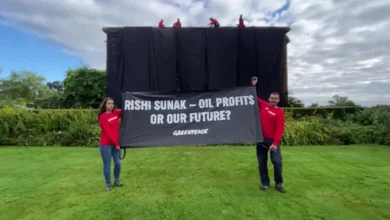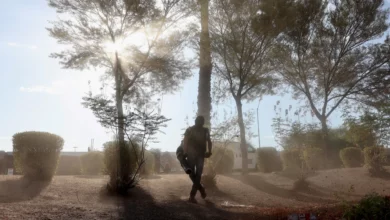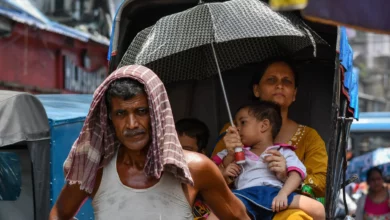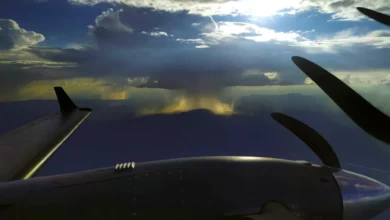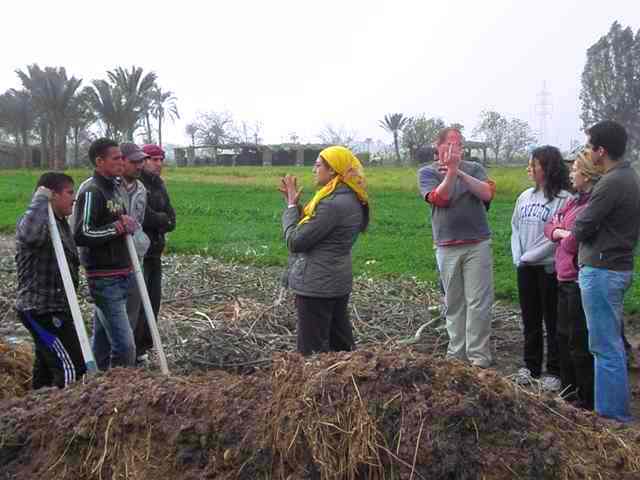
Various exciting initiatives have sprouted in the field of environment this year. Three of them in particular have shown extraordinary ambition and dynamism, in the various fields of sustainable agriculture, climate change and the preservation of biodiversity.
Nawaya
Nawaya (intention, seed or nucleus in Arabic) is an initiative launched by a team of young “green” Egyptians — Sarah al-Sayed, Adam Molyneux-Berry and Laura Tabet — who are proponents of sustainable agriculture to co-create self-reliant, bottom-up and resilient rural communities in Egypt.
Co-creation, the Nawaya team believes, occurs when they work in partnership with communities in order to determine local needs. Their working approach has three steps: community participation in program design, education and training, and hands-on prototyping.
Convinced that we learn best when physically engaged, throughout the year Nawaya has organized several compost workshops with farmers and city dwellers alike, as well as workshops on sustainable design.
They have also initiated a campaign to throw seed balls — a mix of clay, compost and seeds — all over Cairo to boost food production in urban spaces.
Their plans for the next year include organizing courses on biological water filtration, natural pest and disease control for crops, water and energy sufficiency, animal and crop rotation systems and natural buildings.
The National Coalition on Climate Change
To address the issue of climate change, two renowned environmentalists, Lama El Hatow (IndyAct, Water Institute of the Nile) and Sarah Rifaat (350.org), created the National Coalition on Climate Change for Egypt.
The coalition brought together a diverse range of biogas experts, sanitation specialists, green energy students, anti-nuclear campaigners, Nile river researchers, hydroponics developers, urban planners, bike aficionados and coral reef conservationists.
In its first meeting, the group discussed how climate change relates to the issues of urban planning, agriculture, biodiversity, energy, community development, water sanitation and public transportation, then outlined priorities for each theme.
Determined to act as a citizen platform that creates campaigns to raise awareness on climate change issues, the coalition had a second meeting in December to refine its goals.
Egypt’s share of emissions may be small when compared to developed countries (0.59 percent of global emissions), but climbing temperatures, rising sea levels, the decreasing availability of fertile soil and water evaporation have already taken a toll on Egypt’s economic, industrial and agricultural sectors. Still in its early days, the coalition has its work cut out.
The Nile Project
The Nile Project was founded in August 2011 by Egyptian ethnomusicologist Mina Girgis and Ethiopian-American singer Meklit Hadero.
They hope to create an intercultural dialogue between the peoples of the Nile Basin countries using an innovative approach that combines music, education and an enterprise platform. Aswan will witness the Nile Project’s first event in January, when participants will have the opportunity to see the river in a new light, and not simply as a waterway.
Girgis explains that the Nile is a living organism that holds together a complex network of interrelated ecosystems on which tilapias, egrets, crocodiles and papyrus are as dependent as humans for their survival.
“I really think the project will provide a good platform for cultivating the critical connections necessary to create a new reality with our environment,” Girgis adds, “and an opportunity to think together and take a leap into a more sustainable Nile future.”
The Nile Project is also an invitation to work together to understand the Nile as one system in which fishing, irrigation, tourism and transport are intricately connected to climate change, floods, droughts and dams.
This piece was originally published in Egypt Independent's weekly print edition.

